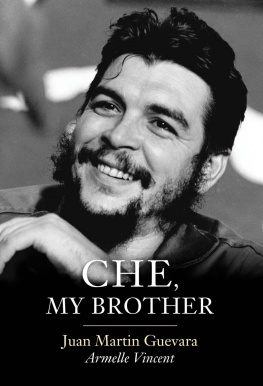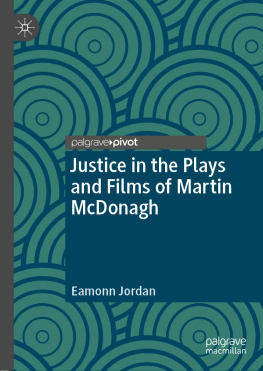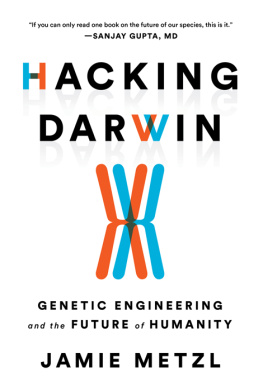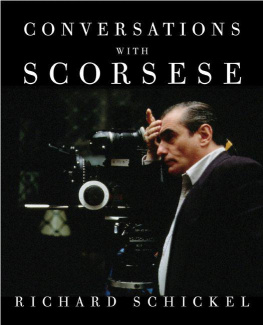Eric San Juan - The Films of Martin Scorsese
Here you can read online Eric San Juan - The Films of Martin Scorsese full text of the book (entire story) in english for free. Download pdf and epub, get meaning, cover and reviews about this ebook. year: 2020, publisher: Rowman & Littlefield Publishers, genre: Detective and thriller. Description of the work, (preface) as well as reviews are available. Best literature library LitArk.com created for fans of good reading and offers a wide selection of genres:
Romance novel
Science fiction
Adventure
Detective
Science
History
Home and family
Prose
Art
Politics
Computer
Non-fiction
Religion
Business
Children
Humor
Choose a favorite category and find really read worthwhile books. Enjoy immersion in the world of imagination, feel the emotions of the characters or learn something new for yourself, make an fascinating discovery.

- Book:The Films of Martin Scorsese
- Author:
- Publisher:Rowman & Littlefield Publishers
- Genre:
- Year:2020
- Rating:3 / 5
- Favourites:Add to favourites
- Your mark:
- 60
- 1
- 2
- 3
- 4
- 5
The Films of Martin Scorsese: summary, description and annotation
We offer to read an annotation, description, summary or preface (depends on what the author of the book "The Films of Martin Scorsese" wrote himself). If you haven't found the necessary information about the book — write in the comments, we will try to find it.
The Films of Martin Scorsese — read online for free the complete book (whole text) full work
Below is the text of the book, divided by pages. System saving the place of the last page read, allows you to conveniently read the book "The Films of Martin Scorsese" online for free, without having to search again every time where you left off. Put a bookmark, and you can go to the page where you finished reading at any time.
Font size:
Interval:
Bookmark:

Published by Rowman & Littlefield
An imprint of The Rowman & Littlefield Publishing Group, Inc.
4501 Forbes Boulevard, Suite 200, Lanham, Maryland 20706
www.rowman.com
6 Tinworth Street, London, SE11 5AL, United Kingdom
Copyright 2020 by Eric San Juan
All rights reserved. No part of this book may be reproduced in any form or by any electronic or mechanical means, including information storage and retrieval systems, without written permission from the publisher, except by a reviewer who may quote passages in a review.
British Library Cataloguing in Publication Information Available
Library of Congress Cataloging-in-Publication Data
Names: San Juan, Eric, 1973 author.
Title: The films of Martin Scorsese : gangsters, greed, and guilt / Eric San Juan.
Description: Lanham : Rowman & Littlefield, [2020] | Includes bibliographical references and index. | Summary: This volume looks at the 24 features directed by Martin Scorsese in chronological order, providing an overview with some historical context, followed by a brief synopsis, and other details per film. Eric San Juan provides an accessible analysis diving deep into the themes, techniques, and innovations of each movie.Provided by publisher.
Identifiers: LCCN 2019059449 (print) | LCCN 2019059450 (ebook) | ISBN 9781538127650 (cloth) | ISBN 9781538127667 (epub)
Subjects: LCSH: Scorsese, MartinCriticism and interpretation.
Classification: LCC PN1998.3.S39 S26 2020 (print) | LCC PN1998.3.S39 (ebook) | DDC 791.43023/3092dc23
LC record available at https://lccn.loc.gov/2019059449
LC ebook record available at https://lccn.loc.gov/2019059450
 The paper used in this publication meets the minimum requirements of American National Standard for Information SciencesPermanence of Paper for Printed Library Materials, ANSI/NISO Z39.48-1992.
The paper used in this publication meets the minimum requirements of American National Standard for Information SciencesPermanence of Paper for Printed Library Materials, ANSI/NISO Z39.48-1992.
N o book is written in a vacuum. My thanks to Stephen Ryan, whose enthusiasm for the project lit a fire under me. This book would not exist had he not lobbied for it. I am also in debt to Jim McDevitt, whose frank feedback and thorough reading helped me improve every single page. His work was tireless and his friendship unerring, and for that I am grateful.
Thanks also to Cary Christopher, whose eagle eyes were a big help in correcting the text, and to Eric Preston and John Zarate, whose early feedback helped me refine the chapter on Raging Bull. And thanks to Robert San Juan for taking a road trip with me to see The Irishman.
Immense gratitude is also given to the giants on whose shoulders I stand. The journalism and film criticism of Roger Ebert, Richard Schickel, Amy Taubin, and many others not only proved a valuable resource in researching this book, but it also helped guide the way for all who have followed in their footsteps.
And finally, thanks to Martin Scorsese for creating the masterpieces this book examines. They have been engaging, enlightening, and endlessly entertaining.
F ew mainstream filmmakers have as pronounced a disregard for the supposed rules of filmmaking as Martin Scorsese. His inventiveness displays a reaction against the right way to make a movie, frequently eschewing traditional cinematic language in favor of something flashy and unexpected and contrary to the way proper films are done. Yet despite copious voice-over, freeze-frames, fast cuts, and dizzying editing, hes become one of the most influential directors of the last fifty years, a critical darling (though rarely a box office titan), and a fan favorite. That makes his body of work ripe fodder for a broad, movie-by-movie analysis.
Scorsese is perhaps the most unpredictable auteur of the last fifty years. His best-loved work tends toward violence and kinetic energy and innovative use of popular songs, but hes much more than mobsters and mayhem and music. He constantly surprises. From charming childrens fables to somber meditations on the nature of faith, period pieces, sprawling biopics, music documentaries, and (of course) gritty crime dramas, few directors with as singular a vision as his can boast such varied work. Hes even an award-winning documentary filmmaker, with more than a dozen documentary films to his name (though this work is beyond the purview of this book).
Yet he does have a singular vision. Dig deep, and you find a connective tissue that ties his work together, a distinct sensibility that, despite its eclectic nature, makes his movies uniquely Martin Scorsese. In the pages ahead, I explore that connective tissue, pick apart the themes that tie it all together, and celebrate the work of one of cinemas greatest directors. I look at the con men, the criminals, the gangsters, the moguls, and the nobodies of his filmography. I examine the techniques that have made him stand out as one of the most innovative directors in history: the needle-drop soundtracks, the outbursts of violence, the daring camera work, and more. And I look at the themes that are ultimately the engine driving all of this: themes of self-sabotage, of alienation, of faith, and of guilt.
To fully understand the well from which Martin Scorseses work is drawn, its first important to understand Scorsese himself because the best of the directors work is often deeply personal. Born in 1942 in Queens, New York, his family moved to the Little Italy section of the city when he was still young. His parents, Charles and Catherine, were both working-class children of Italian immigrants who labored in the citys garment district. Due to severe asthma as a child, young Marty (as his friends still call him) did not play sports or have much physical fun. Instead, he observed life on the streets from his apartment window. Watching from above gave Scorsese a birds-eye view of the people who populated his neighborhood: how they interacted, the subtle power dynamics at play, and more. Going to the movies with his father was his primary exposure to the wider world outside the city. And it was a lot of movies. If it hit the screen, they saw it, and he soaked it all in. These two formative experiences helped him think visually when it came to expressing his observations to others. My movie camera really goes right back to when I was raised on the Lower East Side. Because of asthma and other reasons I had to sometimes distance myself. The objectivity was almost like using a movie camera, he once said.
You cant separate Martin Scorsese from his Little Italy upbringing, either. The two are inextricably intertwined. Those he observed from that apartment window were working-class people, often poor, and street crime was a normal part of what he saw. As he entered his teen years, he became part of that world, albeit from a distance. In his neighborhood, trading words on the street with someone could result in a fight or worse. Scorsese himself was never a fullblown street crook, but he ran with some hell-raisers in his youth, as depicted in semi-autobiographical films like Whos That Knocking at My Door? and Mean Streets. Witnessing those street conflicts, verbal or otherwise, became an essential building block of his work.
For all the music and violence and style of his films, Scorseses work is very much about people: what drives them; what consumes them; what obsesses them; and perhaps most important of all, what fills them with guilt. Of all the human traits that run through his work, self-destructive tendencies and the guilt that comes with them are arguably the most notable. It may be a stereotype to associate this with the directors Catholicism, but Scorsese himself sees the two as being linked, and indeed, as the oft-repeated story goes, as a teen he once considered becoming a priest. Though he long ago abandoned that potential career path, Catholicism never left him. Faith and all the contradictions that come with it have always been a vital part of his worldview:
Next pageFont size:
Interval:
Bookmark:
Similar books «The Films of Martin Scorsese»
Look at similar books to The Films of Martin Scorsese. We have selected literature similar in name and meaning in the hope of providing readers with more options to find new, interesting, not yet read works.
Discussion, reviews of the book The Films of Martin Scorsese and just readers' own opinions. Leave your comments, write what you think about the work, its meaning or the main characters. Specify what exactly you liked and what you didn't like, and why you think so.




